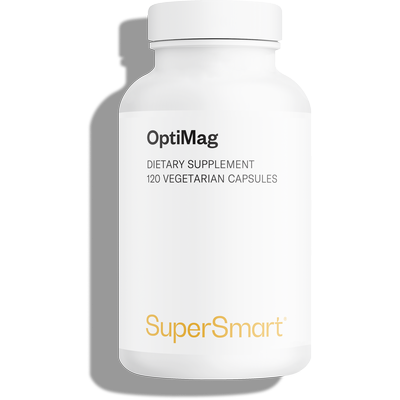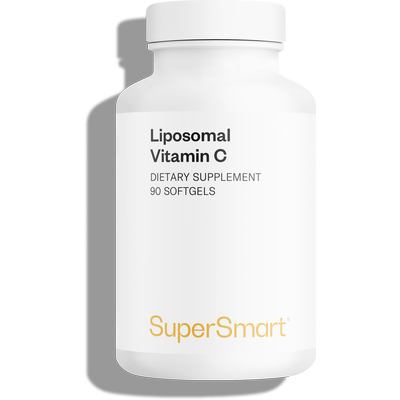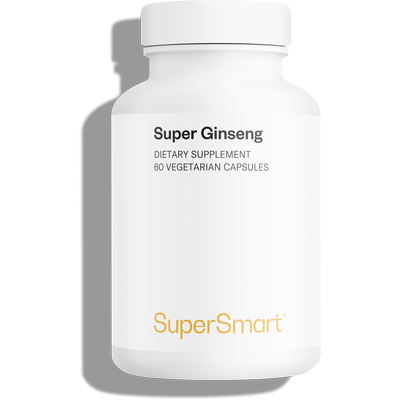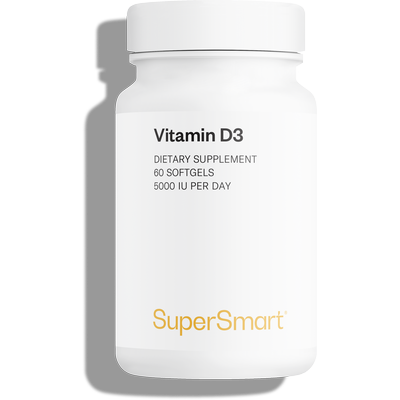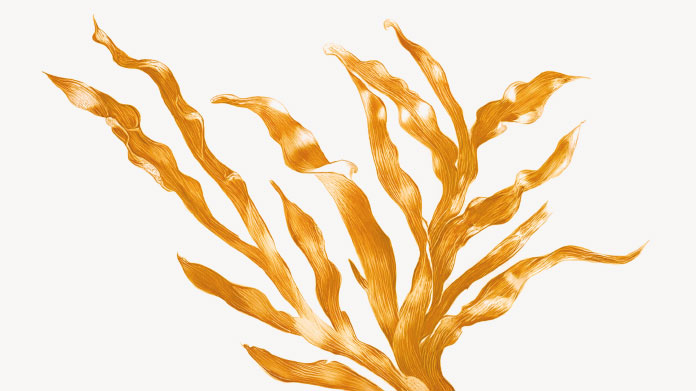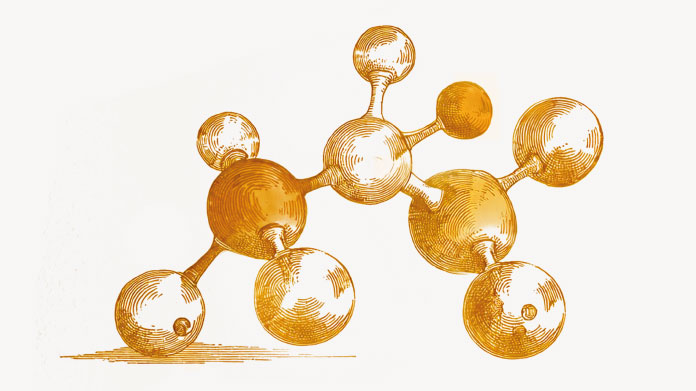Mononucleosis and long Covid: what natural treatments are there?
Many researchers believe that reactivation of infectious mononucleosis by the SARS-CoV-2 virus may be responsible for long Covid. How can this viral disease – which is spread by saliva and causes fatigue, sore throat and fever – be treated naturally?

Mononucleosis: recap on the ‘kissing disease’
The viral infection infectious mononucleosis is caused by the Epstein-Barr virus (EBV), a member of the herpes virus family(1). As EBV is extremely widespread, the body is often exposed to it in childhood and adolescence but remains symptom-free, though infection triggers the production of protective antibodies.
But in the absence of such infection at a young age, the body has no immunity. Exposure to the virus later in life thus causes infectious mononucleosis, or ‘mono’, key symptoms of which include high fever, intense fatigue, loss of appetite, muscle pain, and headaches. Mono can also cause a particularly painful sore throat (2).
Transmitted by saliva and coughing, infectious mononucleosis is often referred to as the ‘kissing disease’ (3).
Is mono responsible for long Covid?
We know that many illnesses, including mononucleosis, frequently lead to post-infection syndromes (4-5). Since the pandemic, a number of scientists have therefore been looking at a potential link connecting interactions between Covid and various infections, and long Covid.
In a study published in the journal Pathogens in June 2021 (6), a group of researchers set out to test a hypothesis concerning long Covid. They theorised that the inflammatory response to infection with Covid-19 might provoke a reactivation of the Epstein-Barr virus, present in 90% of adults.
A reactivation such as this would explain the symptoms experienced by 1 in 3 patients after recovery from initial COVID-19 infection: fatigue, skin rashes, brain fog, etc.
Having indeed identified a relationship between SARS-CoV-2 and EBV reactivation, the study’s authors recommend the systematic testing of newly-positive Covid patients for evidence of EBC reactivation so that mononucleosis symptoms can be treated as early as possible and thus inhibit the development of long Covid and its impact on patients.
What treatments exist for infectious mononucleosis?
Since infectious mononucleosis is a viral infection, there are unfortunately no effective treatments (the few antivirals that do exist are not generally recommended) (7).
Paracetamol and anti-inflammatories are, however, often prescribed for symptom relief, especially fever and headaches. Rest and proper hydration are also recommended.
Whatever the circumstances, if you suspect you have contracted infectious mononucleosis, arrange to see your doctor for a blood test - the only way to obtain a confirmed diagnosis.
Natural treatments for mononucleosis
While no miracle cure exists for infectious mononucleosis, there are natural treatments that can help relieve certain symptoms and also support your immunity.
To combat the intense fatigue associated with mono, the ever-essential vitamin C is likely to prove invaluable, particularly in winter. For energy metabolism, the immune system, psychological function, reducing fatigue, etc.: vitamin C is your ‘go-to’ health ally. Doctors often recommend it to help their patients get back on their feet.
Similarly, vitamin D supports healthy immune system function, and supplementation is practically essential, especially in winter (8).
Supplementing with magnesium, which helps to reduce fatigue and supports normal nervous system and psychological function, has also proved invaluable in cases of overwhelming fatigue. Remember too that magnesium deficiency is particularly widespread.
Last but not least, Ayurvedic medicine has provided us a very useful adaptogen plant: ginseng. Helping to reduce fatigue, maintain vitality, and support both the immune system as well as cerebral performance and reactivity, the root of this medicinal plant offers solutions for multiple symptoms (9).
SUPERSMART ADVICE
References
- EBELL, Mark H. Epstein-Barr virus infectious mononucleosis. American family physician, 2004, vol. 70, no 7, p. 1279-1287.
- VOULOUMANOU, Evridiki K., RAFAILIDIS, Petros I., et FALAGAS, Matthew E. Current diagnosis and management of infectious mononucleosis. Current opinion in hematology, 2012, vol. 19, no 1, p. 14-20.
- HOAGLAND, Robert J., et al.The transmission of infectious mononucleosis. American Journal of Medical Sciences, 1955, vol. 229, no 3, p. 262-72.
- ELIGIO, Pizzigallo, DELIA, Racciatti, et VALERIA, Gorgoretti. EBV chronic infections. Mediterranean journal of hematology and infectious diseases, 2010, vol. 2, no 1.
- HOTCHIN, N. A., READ, R., SMITH, D. G., et al.Active Epstein-Barr virus infection in post-viral fatigue syndrome. Journal of Infection, 1989, vol. 18, no 2, p. 143-150.
- GOLD, Jeffrey E., OKYAY, Ramazan A., LICHT, Warren E., et al.Investigation of long COVID prevalence and its relationship to Epstein-Barr virus reactivation. Pathogens, 2021, vol. 10, no 6, p. 763.
- BAILEY, R. E. Diagnosis and treatment of infectious mononucleosis. American family physician, 1994, vol. 49, no 4, p. 879-888.
- BAE, Minkyung et KIM, Hyeyoung. The role of vitamin C, vitamin D, and selenium in immune system against COVID-19. Molecules, 2020, vol. 25, no 22, p. 5346.
- NOCERINO, Emilia, AMATO, Marianna, et IZZO, Angelo A. The aphrodisiac and adaptogenic properties of ginseng. Fitoterapia, 2000, vol. 71, p. S1-S5.
Keywords
20 Hours
The products I use are excel·lent
The products I use are excel·lent
ROSAS Josep Maria
9 Days
Delivery is prompt and I never saw a…
Delivery is prompt and I never saw a quality problem with the manufacturing. It is not possible to assess efficacy on a personal basis, since too many factors come into play. Efficacy can only be assessed statistically with a sufficient number of cases.
Roger De Backer
9 Days
I collaborates with the Supersmart…
I collaborates with the Supersmart more than 10 years. Every thing is going good. Quality of the things is good. Delivery comes in time. Five stars definitely !!!
Oleksiy
10 Days
All good
Simple, frictionless site, easy ordering, good delivery updates and execution.
Chris Robbins
12 Days
I feel better
I feel better
Peter Ammann
12 Days
Prompt delivery
Prompt delivery
JAKUB Radisch
13 Days
My new go-to for top quality supplements!
I am buying more and more of my supplements from this superb, high quality company. Cannot recommend it enough. Plus, excellent customer service with a quick, helpful team and speedy deliveries. Highly recommend Supersmart!
Cecilie H.
17 Days
SUPERSMART WHAT ELSE👍
SUPERSMART WHAT ELSE👍
DIEDERLE Christophe
20 Days
Excellent quality products with…
Excellent quality products with innovative formulas, as someone who has been suffering with acid reflux, these supplements have been lifesavers.
Oriana Moniz
20 Days
high quality supplement!
high quality supplement!
GALANT
20 Days
Good service prompt delivery
Good service prompt delivery
Mrs Marcella Reeves
25 Days
I like your clear explanation
I like your clear explanation. And how to make a choice of products for a specific health problem
Ingrid
32 Days
Great product and it arrives quickly.
Great product and it arrives quickly.
SOMMARIVA Gianni
33 Days
Excellent products and fast service.
Excellent products and fast service. What do we need more?
Margarida
37 Days
The variety of products is amazing
The variety of products is amazing, the offers are good and the sending is very fast. I just miss having a bit more of guidance about combinations, possible interactions, etc.
Maria Angeles Verdu

